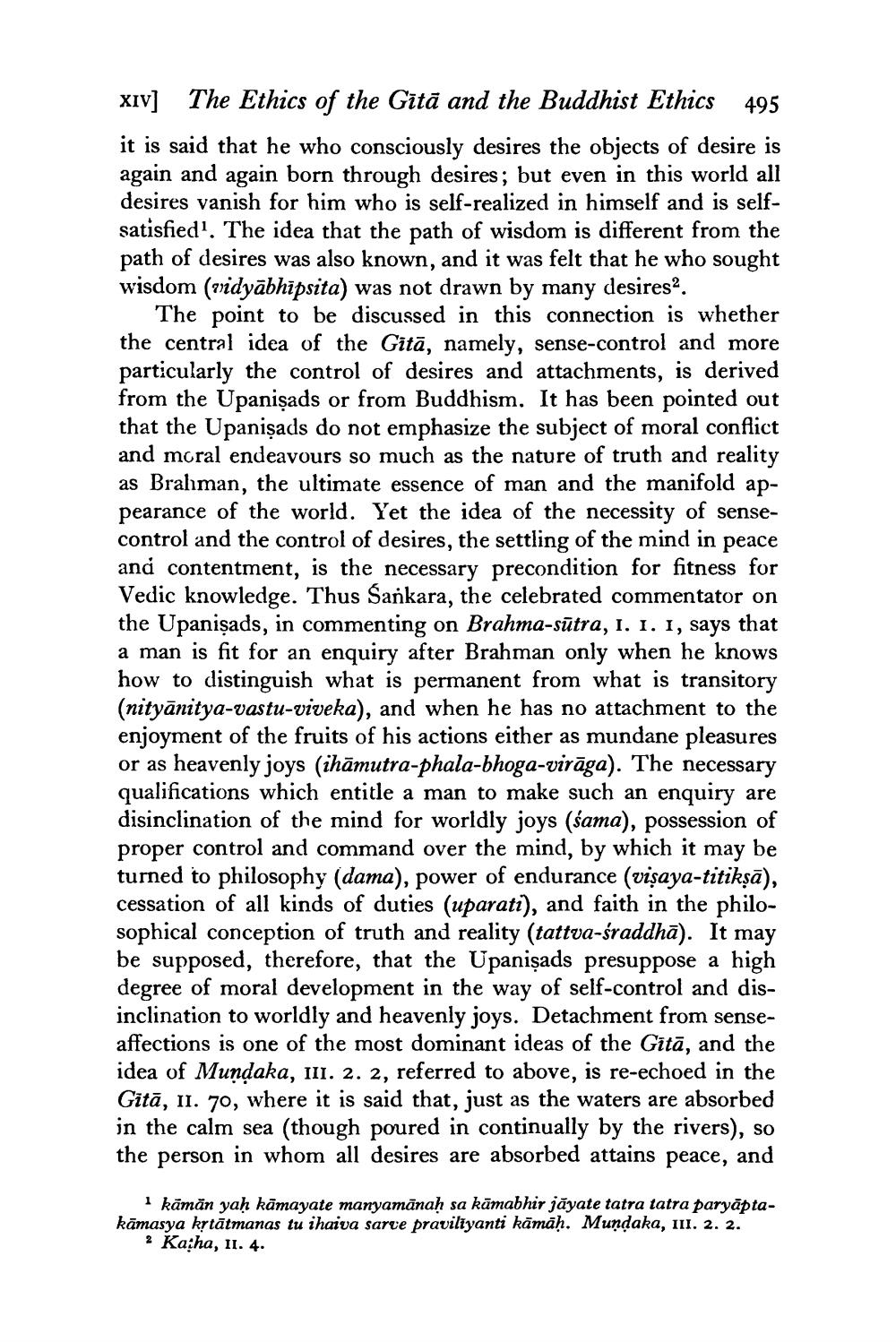________________
XIV]
The Ethics of the Gita and the Buddhist Ethics 495 it is said that he who consciously desires the objects of desire is again and again born through desires; but even in this world all desires vanish for him who is self-realized in himself and is selfsatisfied'. The idea that the path of wisdom is different from the path of desires was also known, and it was felt that he who sought wisdom (vidyabhipsita) was not drawn by many desires2.
The point to be discussed in this connection is whether the central idea of the Gita, namely, sense-control and more particularly the control of desires and attachments, is derived from the Upanisads or from Buddhism. It has been pointed out that the Upanisads do not emphasize the subject of moral conflict and moral endeavours so much as the nature of truth and reality as Brahman, the ultimate essence of man and the manifold appearance of the world. Yet the idea of the necessity of sensecontrol and the control of desires, the settling of the mind in peace and contentment, is the necessary precondition for fitness for Vedic knowledge. Thus Sankara, the celebrated commentator on the Upanisads, in commenting on Brahma-sūtra, 1. 1. 1, says that a man is fit for an enquiry after Brahman only when he knows how to distinguish what is permanent from what is transitory (nityānitya-vastu-viveka), and when he has no attachment to the enjoyment of the fruits of his actions either as mundane pleasures or as heavenly joys (ihāmutra-phala-bhoga-virāga). The necessary qualifications which entitle a man to make such an enquiry are disinclination of the mind for worldly joys (sama), possession of proper control and command over the mind, by which it may be turned to philosophy (dama), power of endurance (viṣaya-titikṣā), cessation of all kinds of duties (uparati), and faith in the philosophical conception of truth and reality (tattva-śraddha). It may be supposed, therefore, that the Upanisads presuppose a high degree of moral development in the way of self-control and disinclination to worldly and heavenly joys. Detachment from senseaffections is one of the most dominant ideas of the Gitā, and the idea of Mundaka, III. 2. 2, referred to above, is re-echoed in the Gitā, 11. 70, where it is said that, just as the waters are absorbed in the calm sea (though poured in continually by the rivers), so the person in whom all desires are absorbed attains peace, and
1 kāmān yaḥ kāmayate manyamānaḥ sa kāmabhir jāyate tatra tatra paryāptakāmasya kṛtātmanas tu ihaiva sarve praviliyanti kāmāḥ. Muṇḍaka, 111. 2. 2.
2 Katha, II. 4.




